News
Are you ready for TEK? – A guide to evaluating the Training, Equipment and Knowledge required for starting technical diving
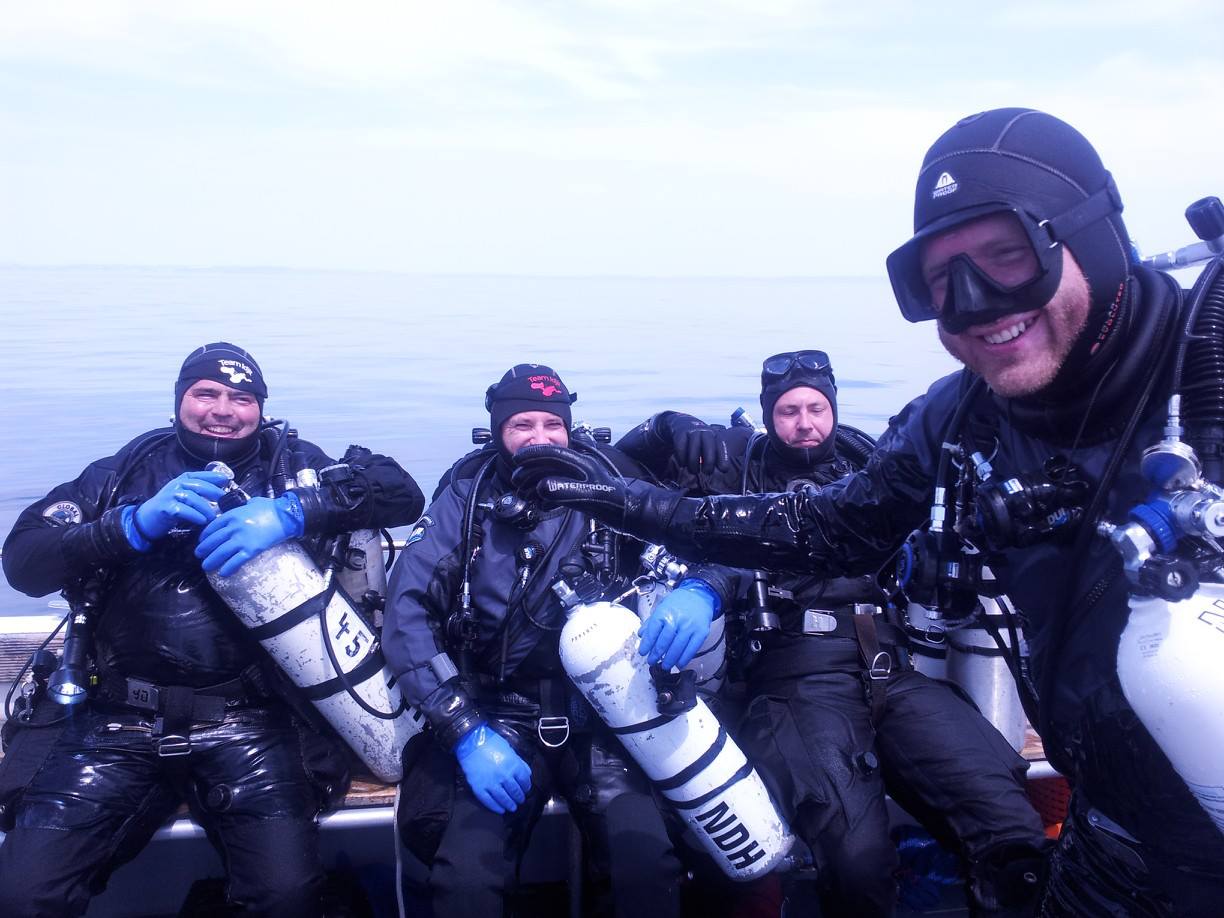
Part 1 – Training
What was once out of reach to everyone but a select few is now part of the mainstream in many sports and diving is no exception. Caves and ocean depths that were until recently accessible only by experts with a lifetime of training can now be touched by those eager amateurs prepared to invest in training and equipment that is now widely available.
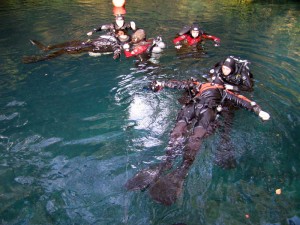 However the increased availability of this specialised training and equipment presents us with a double edged sword. On one side are those who are prepared to make a long term investment and gain the right tools to safely enjoy diving in some incredible and extreme locations not accessible to 99% of the diving community. One the other side there are divers seeking short cut training modelled on mainstream recreational courses. This often results in inadequate training, equipment and experience that can cause them to end up in situations and locations that they will realise they are ill prepared for far too late.
However the increased availability of this specialised training and equipment presents us with a double edged sword. On one side are those who are prepared to make a long term investment and gain the right tools to safely enjoy diving in some incredible and extreme locations not accessible to 99% of the diving community. One the other side there are divers seeking short cut training modelled on mainstream recreational courses. This often results in inadequate training, equipment and experience that can cause them to end up in situations and locations that they will realise they are ill prepared for far too late.
So in a series of three articles I wanted to explore the three key areas of training, equipment and knowledge (TEK) that a diver should carefully consider before starting a progression down this route.
How do you get the Training?
#1 – Do your research. Who is doing the diving you want to do and how did they get trained?
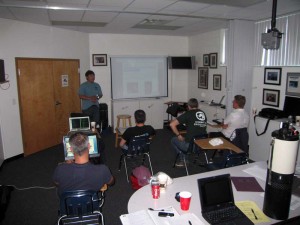 I made a number of early decisions at the start of my technical diving career based on two areas of information. I read voraciously about the sorts of diving I wanted to do. Tales of North East US deep wrecks and North Florida caves in the 80’s & 90’s led me to leading lights of those scenes and then I looked at how they gained their experience and training. Fortunately by the time I started down this route in 2008 things were a little more organised than the early days of deep wreck and cave diving! Today you can easily research the divers, agencies and instructors and find out if, what and how they are doing things appeals to you. There are huge online resources to get your grey matter going, however be aware of polarised ‘internet opinions’ as they will hold you back.
I made a number of early decisions at the start of my technical diving career based on two areas of information. I read voraciously about the sorts of diving I wanted to do. Tales of North East US deep wrecks and North Florida caves in the 80’s & 90’s led me to leading lights of those scenes and then I looked at how they gained their experience and training. Fortunately by the time I started down this route in 2008 things were a little more organised than the early days of deep wreck and cave diving! Today you can easily research the divers, agencies and instructors and find out if, what and how they are doing things appeals to you. There are huge online resources to get your grey matter going, however be aware of polarised ‘internet opinions’ as they will hold you back.
#2 – Get your basic dive skills nailed. You need to be solid before building complex skills.
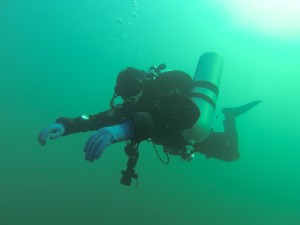 Finding a baseline of where you are today is vital before considering developing complex new skills. You may think your basic skills such as trim, buoyancy control and propulsion are pretty good (everyone’s is right?) but the reality is they probably fall short of the entry point of many technical or cave classes. During training you will be expected to remain in a flat (trim) static position in mid water (not kneeling!) and this can prove difficult even for experienced divers. A technical diver will be able to maintain trim within a 15 degree window, buoyancy with a 1m window even when task loaded such as performing a gas switch, sharing gas or manipulating a valve. Have you ever wondered why the visibility behind you is so bad? So you will also need a range of kicks designed to not disturb silt and be able to manoeuvre in a confined space. The fact is none of these basic dive skills are naturally occurring and you really need an experienced technical diver who is also an instructor to give you structured feedback and develop your basic skills. You should consider a foundational course from an agency with an established technical curriculum such as GUE fundamentals before moving on.
Finding a baseline of where you are today is vital before considering developing complex new skills. You may think your basic skills such as trim, buoyancy control and propulsion are pretty good (everyone’s is right?) but the reality is they probably fall short of the entry point of many technical or cave classes. During training you will be expected to remain in a flat (trim) static position in mid water (not kneeling!) and this can prove difficult even for experienced divers. A technical diver will be able to maintain trim within a 15 degree window, buoyancy with a 1m window even when task loaded such as performing a gas switch, sharing gas or manipulating a valve. Have you ever wondered why the visibility behind you is so bad? So you will also need a range of kicks designed to not disturb silt and be able to manoeuvre in a confined space. The fact is none of these basic dive skills are naturally occurring and you really need an experienced technical diver who is also an instructor to give you structured feedback and develop your basic skills. You should consider a foundational course from an agency with an established technical curriculum such as GUE fundamentals before moving on.
#3 – Be prepared to pay and be prepared to not pass. If you see a ‘cheap’ technical class with a 100% pass rate, run.
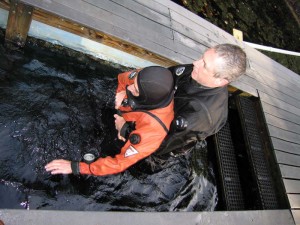 The sorts of class you are looking at are probably quite a bit more money and longer than your basic dive classes. For example most ‘normoxic’ trimix and basic cave classes are between 5-6 days and there will be a gas bill at the end of it! You may even have to travel and pay for boat costs. It can quickly add up and add to personal pressure to ‘perform’.
The sorts of class you are looking at are probably quite a bit more money and longer than your basic dive classes. For example most ‘normoxic’ trimix and basic cave classes are between 5-6 days and there will be a gas bill at the end of it! You may even have to travel and pay for boat costs. It can quickly add up and add to personal pressure to ‘perform’.
Your instructor will also fully understand the environment they are teaching you to dive in and will not accept second best. This means no matter how much you have spent they simply will not pass you if you don’t make the grade.
#4 – Make sure your instructor is an active diver. You want real experience, not training slates.
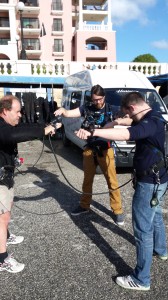 I have already mentioned the cost of training at this level. You are for the most part paying for that instructor’s experience as much you are paying for their time. A good instructor should be diving above the level that they are teaching, so they will be bringing a huge amount of personal diving experience to your class. Many instructors only teach and this brings nothing to this type of diving. The best instructors I know work hard to maintain a balance between being active divers and educators.
I have already mentioned the cost of training at this level. You are for the most part paying for that instructor’s experience as much you are paying for their time. A good instructor should be diving above the level that they are teaching, so they will be bringing a huge amount of personal diving experience to your class. Many instructors only teach and this brings nothing to this type of diving. The best instructors I know work hard to maintain a balance between being active divers and educators.
In the next part of this series I will be looking at the equipment required for technical and cave training. Are you prepared to change your entire configuration right down to your fins?
James teaches exclusively as a GUE (Global Underwater Explorers) instructor for TecLife (www.divelife.co.uk).
Blogs
Discover Curaçao with the Ultimate Dive Vacation Guide – 2024 DEMA Special Edition

Dive Travel Curaçao is thrilled to announce the launch of the Curaçao Dive Vacation Guide – 2024 DEMA Special Edition, an expertly curated resource that unveils the unparalleled dive experiences and vacation possibilities awaiting you in Curaçao. Produced exclusively for the Diving Equipment & Marketing Association (DEMA) Show 2024, this special edition guide is packed with exclusive insights, travel tips, and limited-time DEMA offers that make it easier than ever to explore Curaçao’s stunning underwater landscapes and vibrant culture.
Explore Curaçao’s Unmatched Diving Opportunities
With over 70 diverse dive sites along its southern coastline, Curaçao is a bucket-list destination for divers of all experience levels. From thriving coral reefs and intricate marine ecosystems to historic shipwrecks, the island offers a variety of underwater experiences that are hard to match. The Curaçao Dive Vacation Guide – 2024 DEMA Special Edition provides detailed recommendations for both shore and boat diving, making it a valuable tool for divers seeking the best entry points, pristine reefs, and hidden treasures along the coastline. Whether you are an avid wreck diver, or a beginner interested in shallow reefs, Curaçao has it all.

Uncover Eco-Friendly Dive Resorts and Top Dive Operators
This DEMA 2024-exclusive Curaçao guide goes beyond diving to feature insider information on Curaçao’s eco-friendly accommodations, dive resorts, and top-rated dive operators committed to sustainable dive tourism. From all-inclusive resorts that support coral reef restoration initiatives to charming boutique hotels near prime dive locations, the guide helps travelers find the ideal stay to match their vacation goals. It also spotlights trusted dive operators on the island who prioritize environmental preservation, offering travelers a way to enjoy the underwater world responsibly.

Immerse Yourself in Curaçao’s Culture, Culinary Delights, and Adventure
Curaçao offers a vibrant Caribbean culture rich in history, music, and culinary fusion. The guide reveals Curaçao’s hidden gems, including culinary hotspots, historical sites, and eco-tourism opportunities that will appeal to both divers and non-divers. Visitors can explore the island’s iconic architecture, savor a diverse range of dishes influenced by Caribbean, European, and South American flavors, and embark on land-based eco-adventures, such as hiking, cave exploration, and visiting national parks.

Exclusive DEMA 2024 Specials and Limited-Time Dive Packages
This special edition guide features limited-time DEMA 2024 offers on dive packages, accommodations, and excursions. Travelers who book through Dive Travel Curaçao, or our Curaçao dive travel partners attending DEMA, will have access to exclusive discounts on custom dive vacation packages, making it easier to plan an affordable, high-quality dive trip that fits your preferences. The Curaçao Dive Vacation Guide – 2024 DEMA Special Edition is designed to simplify your travel planning and help you dive deeper into the incredible experiences that Curaçao has to offer.
It’s Time to Dive Curaçao!
Now is the time to discover why Curaçao is a top dive destination in the Caribbean! Dive Travel Curaçao invites you to experience an unforgettable dive vacation with exclusive DEMA 2024 specials tailored just for you. To secure your spot, download a copy of the Curaçao Dive Vacation Guide – 2024 DEMA Special Edition and contact the Dive Travel Curaçao team to start customizing your Caribbean dive adventure today.
For more information and bookings, please visit Dive Curaçao’s website or contact our reservations team directly.

News
Santa Divers take the Plunge for Charity

Ho Ho Ho! Vobster Quay’s recording-breaking charity Santa diving event returns on Sunday 15th December 2024 for another round of festive fundraising frivolities. Run in aid of the Royal National Lifeboat Institution (RNLI) and Help For Heroes, this ever-popular annual fundraising event aims to raise sack-loads of cash for these two very deserving charities.
Divers of all levels are invited to grab their Santa outfits – and as much festive cheer as they can muster – and head down to Vobster Quay near Mells, Somerset for a mass sponsored Santa dive in aid of charity. In previous years, the event has attracted divers from the far corners of the UK to join in the festive merriment for a final festive dive before the Christmas and New Year break. Back in 2015, the event smashed the world record for the most Santa divers with 188 divers taking to the waters donning their festive finery – a record that remains unbeaten to this day!

Vobster Santas isn’t just about setting records – it’s also about raising some serious cash for charity. Vobster Quay encourages all divers to get into the spirit of the season to raise much-needed funds for two very deserving charities – the Royal National Lifeboat Institution (RNLI) and Help For Heroes.
Through individual sponsorship and online donations, divers can invite their friends, family and work colleagues to sponsor them to plunge into the balmy waters of Vobster Quay dressed in full festive finery. Since the very first Santa dive in 2007, the event has raised over £52,000 for charity. “It’s been over 17 years since the very first charity Santa dive took place at Vobster Quay and every year the event just keeps getting bigger and better” enthused Vobster Quay owner, Amy Stanton.
“Vobster Santas is a great way for divers to say a massive thank you to the both the RNLI and Help For Heroes – two very deserving charities close to our hearts. We’re immensely proud of all that Vobster Santas has achieved and hope that even more divers will join this year’s event on Sunday 15th December. I’m confident that we can make Vobster Santas 2024 the biggest yet!”.
Divers wishing to participate can get involved by simply registering their attendance at
www.vobster.com/event-vobstersantas.php.

-

 News1 month ago
News1 month agoIconic SS United States to become the World’s Largest Artificial Reef
-

 Blogs3 months ago
Blogs3 months agoNovoScuba’s Game-Changing Approach for Dive Store Owners: WE PAY YOU!
-

 News2 months ago
News2 months agoBook Review – 52 Assignments: Underwater Photography
-

 Gear News2 months ago
Gear News2 months agoDYNAMICNORD – New German diving brand enters the British market
-

 News2 months ago
News2 months agoExploring Cenote El Pit: A Diver’s Dream
-

 Gear News2 months ago
Gear News2 months agoTry BARE drysuits (and maybe even win one!) this Friday with Sea & Sea at North West Dive Fest
-

 News3 months ago
News3 months agoComing Soon – 52 Assignments
-

 News3 months ago
News3 months agoSave £200 per person per week at Pole Pole Lodge with Dive Worldwide













